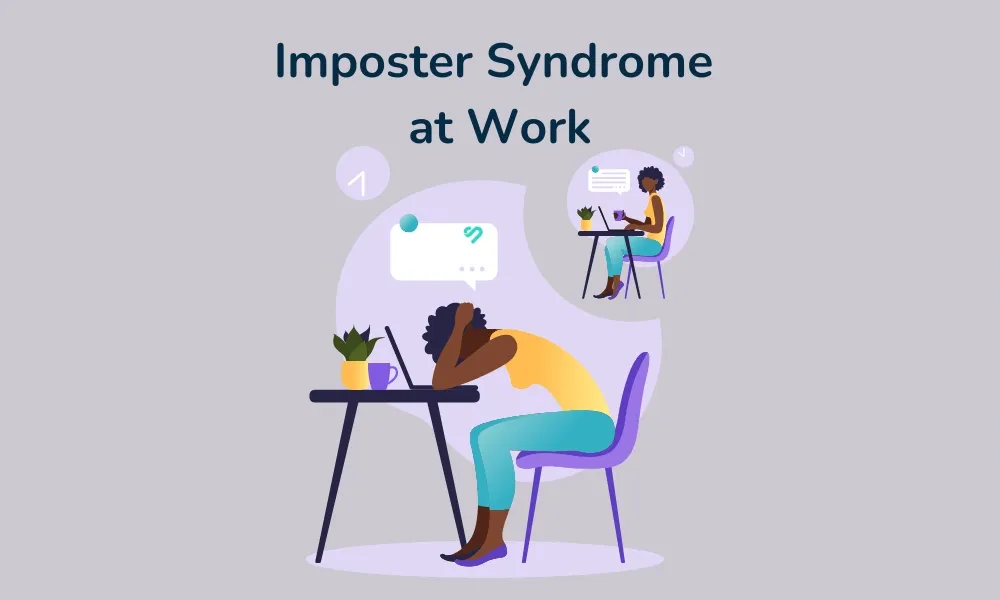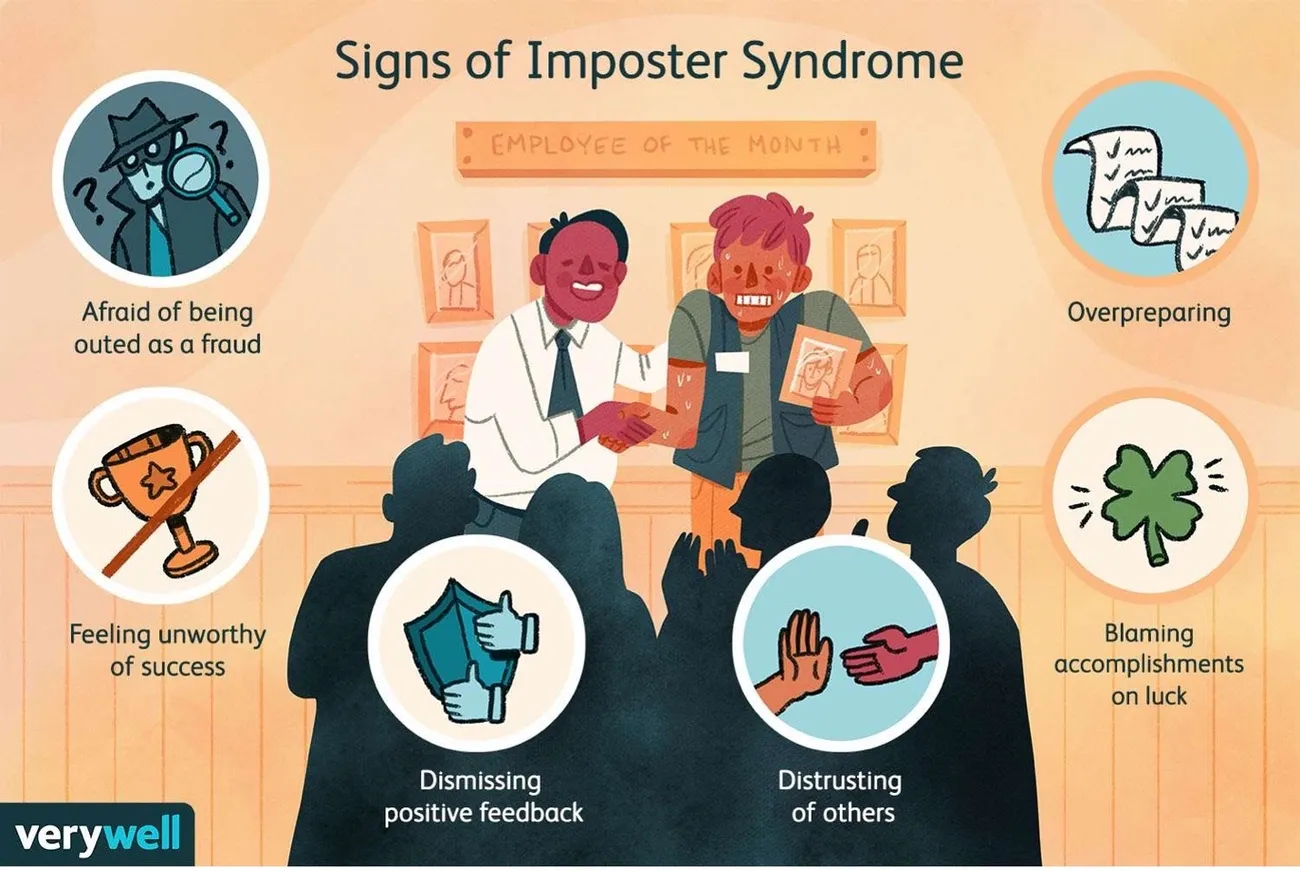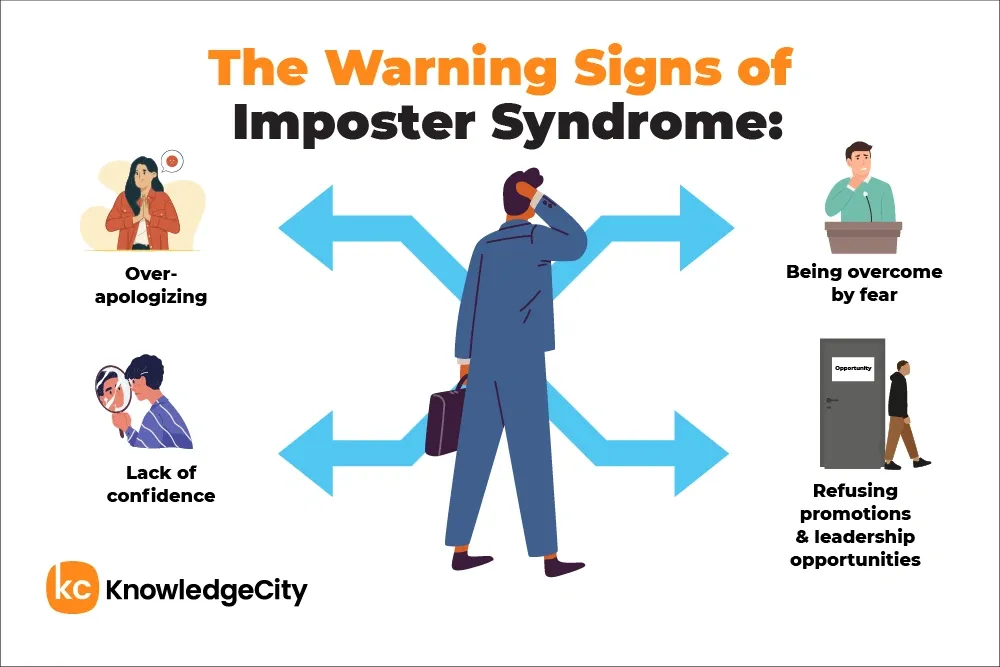Imposter Syndrome at Work: What Most Experts Won’t Tell You

Imposter syndrome affects a staggering 70% of people at some point in their lives. Despite your accomplishments and accolades, do you still feel like you’re somehow deceiving everyone around you? I’ve seen this phenomenon impact countless individuals across various industries, from new employees to seasoned executives.
What exactly is imposter syndrome at work, and why does it seem to target high-achievers, entrepreneurs, and women with particular intensity? Furthermore, while many resources focus on basic coping mechanisms, they often miss the deeper, more nuanced aspects of this experience. Even influential figures like Michelle Obama have openly discussed their struggles with these persistent feelings of inadequacy. In fact, imposter syndrome goes beyond simple self-doubt—it’s characterized by an ongoing fear of being exposed as a fraud, with sufferers typically attributing their successes to luck or external help while viewing setbacks as proof of their perceived inadequacy.
Throughout this article, we’ll explore not just the common imposter syndrome symptoms but also the hidden causes and practical tools that most experts rarely mention. My goal is to help you develop the mindset for success and rebuild your confidence at work by addressing the root causes of your self-doubt.
What is imposter syndrome at work?

Image Source: SnackNation
“I have major imposter syndrome at the moment! I’m constantly doubting everything I’ve achieved, everything I’m working on business wise & everything I’m working on in my personal life! (Even down to second guessing if I should have said certain things, or ‘did I do that properly’…it’s bloody annoying haha). It’s such a peculiar feeling and nothing I do seems to make it ‘less so’.”
— Zoe Sugg, Entrepreneur, author, and digital influencer
The term “imposter syndrome” emerged in the 1970s, describing a persistent feeling of inadequacy despite evident success. Essentially, it’s that nagging voice suggesting you’re not qualified for your position and might be “found out” as a fraud at any moment. Nearly [two-thirds of employees](https://www.amh.org.uk/identifying-imposter-syndrome-in-the-workplace/) express doubt related to work accomplishments or feel inadequate compared to colleagues.
How it differs from general self-doubt
Unlike occasional self-doubt, imposter syndrome is more pervasive and contradicts objective evidence of success. General self-doubt might make you question a decision, but imposter syndrome makes you question your entire right to be in your role. Moreover, this phenomenon specifically affects those with proven track records – it’s the disconnect between how others perceive you (competent) and how you perceive yourself (fraudulent).
Common imposter syndrome symptoms in the workplace
Workplace imposter syndrome often manifests through several recognizable behaviors:
- Perfectionism – Setting unrealistically high standards and feeling like a failure when falling short
- Discounting success – Attributing accomplishments to luck or external factors rather than abilities
- Overworking – Working harder than necessary to prove worth, often leading to burnout[17]
- Fear of failure – Avoiding risks because mistakes feel like confirmation of inadequacy
Following the 2020 pandemic, 47% of organizations noted a rise in employee imposter syndrome. The phenomenon is particularly evident in competitive sectors including creative arts, law, healthcare, journalism, IT, and public services.
Why high achievers are more vulnerable
Surprisingly, high achievers are particularly susceptible to imposter syndrome. According to a 2024 survey, 71% of U.S. CEOs report experiencing it. This occurs primarily because successful people constantly face new challenges that put them in unfamiliar territory. Additionally, high achievers typically set impossibly high standards for themselves, creating a perpetual gap between expectation and reality.
The higher you climb, the more visibility and pressure you experience. Consequently, as noted by workplace psychologist Ben Granger, “As they learn more, they’re starting to realize and see their work in different contexts, and say, ‘Wow, there’s a lot that I don’t know about this topic'”.
The hidden causes no one talks about
“These phrases can (and often do) reinforce a culture where relentless competition, constant comparison, and the masking of vulnerabilities are normalized.”
— Alison Shamir, Imposter Syndrome Expert, International Speaker & Coach
Behind the personal experience of imposter syndrome lie systemic factors rarely addressed in conventional advice. Understanding these hidden causes can help individuals realize their self-doubt isn’t merely a personal failing—it’s often a natural response to complex external pressures.
Cultural and societal expectations
Systemic issues significantly contribute to imposter syndrome, especially for individuals from marginalized groups. Women and minorities experience imposter syndrome more acutely due to the additional burden of overcoming societal biases and discrimination. Stereotypes related to gender, ethnicity, and socioeconomic status frequently make individuals feel like outsiders in professional environments. Subsequently, the internalization of these biases creates a false belief that certain accomplishments should have been harder to achieve than they actually were.
Workplace dynamics and lack of representation
The feeling of being an “only one” in a room intensifies imposter syndrome considerably. With women comprising just 21% of C-suites and people of color only 14%, underrepresented employees can continue feeling like impostors regardless of career advancement. Furthermore, microaggressions in the workplace directly target the same doubts that fuel imposter syndrome. Questions about competence or comments like being “articulate” or “well-spoken” gradually escalate feelings of inadequacy among employees from underrepresented communities.
Family upbringing and early success pressure
Early family dynamics often plant the seeds of imposter syndrome. Children raised by parents who are hypercritical or inconsistent with praise may develop persistent feelings of inadequacy. Similarly, families that emphasize achievement above all else create environments where children learn to doubt their inherent worth. Research indicates that overprotective or controlling parenting styles significantly contribute to imposter syndrome development. Likewise, studies show that people from families experiencing high conflict with minimal support face higher risks of developing these feelings.
How to overcome imposter syndrome with mindset shifts

Image Source: SAEM
The mindset we maintain often determines whether imposter feelings persist or fade. Changing how you think about success and competence can be your most powerful tool against imposter syndrome.
Reframing what competence really means
Many professionals misunderstand what true competence involves. If you’re waiting to feel 100% prepared before considering yourself competent, you’ve set an impossible standard. Competence isn’t about knowing everything—it’s about learning, adapting, and growing through challenges.
The feeling of being an “imposter” is a lonely and often debilitating one. You achieve success, but instead of feeling proud, you’re constantly waiting to be “found out.” What if you could silence that inner critic for good? What if you could finally own your achievements, speak with authority, and lead with genuine confidence?
Understanding the ‘Humble Realist’ mindset
Humble Realism offers an alternative to impostor thinking. Unlike impostors who dismiss their abilities, Humble Realists acknowledge both strengths and growth areas. They understand that a certain amount of fear and self-doubt naturally accompanies achievement. Instead of thinking “If I were really competent, I’d feel more confident,” they recognize confidence often follows competence—not the other way around.
When facing new challenges, give yourself permission to feel uncomfortable for the first 3-6 months. This isn’t incompetence—it’s the natural learning curve everyone experiences.
Letting go of perfectionism and comparison
Perfectionism creates rigid rules about competence that fuel impostor feelings. Replace “I should deliver an unblemished performance 100% of the time” with “Good enough is just fine.” Break the self-destructive belief that perfectionism drives success—it actually creates paralysis.
Stop comparing yourself to others at work, which only damages your confidence. Remember that most colleagues aren’t accomplishing anything you couldn’t achieve with similar experience and resources.
Practical tools experts rarely mention

Image Source: KnowledgeCity
Beyond mindset shifts, tangible strategies exist for battling imposter syndrome daily. The American Psychological Association reports up to 82% of people experience these feelings, hence understanding tactical approaches matters for everyone.
Contextualizing instead of personalizing
Most experts miss a crucial point—imposter syndrome isn’t just a personal problem. External environments often create these feelings, especially for those in marginalized groups. Researchers now suggest focusing on contextual roots rather than viewing it as an individual deficiency. Reframe your experience: “This isn’t about my inadequacy; it’s about navigating a challenging environment.”
Using a ‘brag file’ to track wins
A “brag file” serves as concrete evidence against self-doubt. Keep a document recording:
- Positive feedback from colleagues
- Project successes and milestones
- Compliments from clients or supervisors
- Skills you’ve developed
This resource becomes invaluable during performance reviews and moments of doubt.
Practicing self-compassion in real time
Question your thought patterns immediately. Would you speak to a respected colleague the way you speak to yourself? Start with simply accepting compliments graciously—say “thank you” instead of diminishing your accomplishment.
Creating a support system at work
Even introverts benefit from cultivated workplace connections. As a coach, I’ve guided countless professionals to not just manage, but truly overcome imposter syndrome. We’ll work together to identify your triggers, reframe your mindset, and build the unshakable confidence you need to thrive. Don’t let self-doubt hold you back any longer.
Acting as if you believe in your worth
Occasionally, acting confident despite inner doubts creates genuine confidence. Consider the “magic if” technique—asking yourself: “If I were truly competent, how would I behave right now?”
Conclusion
Imposter syndrome may feel like a personal failing, but as we’ve explored, it actually stems from a complex mix of systemic factors, workplace dynamics, and early life experiences. Your feelings of inadequacy, therefore, aren’t signs of incompetence but rather natural responses to challenging environments. These doubts affect nearly everyone—from entry-level employees to CEOs—and often target the most accomplished individuals.
Remember that true competence isn’t about knowing everything. Rather, it involves continuous learning and adaptation. The humble realist mindset offers a powerful alternative to impostor thinking by acknowledging both strengths and growth areas without dismissing your abilities or accomplishments.
Practical tools make all the difference when combating these persistent feelings. Creating a “brag file” provides tangible evidence against self-doubt, while practicing self-compassion helps challenge negative thought patterns. Contextualizing your experience instead of personalizing it allows you to see the bigger picture beyond your perceived shortcomings.
Perfectionism and comparison only fuel impostor feelings, so let them go. Most of your colleagues aren’t achieving anything you couldn’t accomplish with similar experience and resources. The uncomfortable feelings that arise with new challenges represent normal learning curves—not proof of inadequacy.
It’s time to stop feeling like a fraud and start living up to your full potential. Book a discovery call with me today to take the first step toward genuine confidence. Click Here to Book Your Slot Now. Ultimately, overcoming imposter syndrome doesn’t happen overnight, but with consistent effort and the right strategies, you can quiet that inner critic and fully embrace your well-deserved success.
Key Takeaways
Imposter syndrome isn’t just personal inadequacy—it’s often a natural response to systemic workplace pressures and challenging environments that particularly affect high achievers and underrepresented groups.
• Reframe competence as continuous learning – True competence means adapting and growing through challenges, not knowing everything perfectly from the start.
• Create a “brag file” to combat self-doubt – Document positive feedback, project wins, and skill developments as concrete evidence against impostor feelings.
• Practice contextualizing instead of personalizing – View your struggles as navigating difficult environments rather than personal failings or inadequacy.
• Embrace the “humble realist” mindset – Acknowledge both your strengths and growth areas without dismissing your legitimate accomplishments and abilities.
• Act confident despite inner doubts – Use the “magic if” technique by asking yourself how you’d behave if you truly believed in your competence.
The path to overcoming imposter syndrome requires consistent effort and practical strategies, but with the right mindset shifts and tools, you can silence that inner critic and fully embrace your well-deserved professional success.
